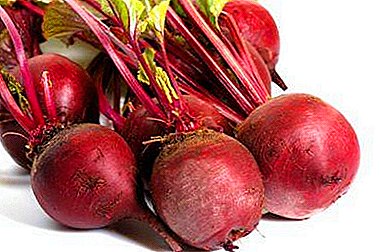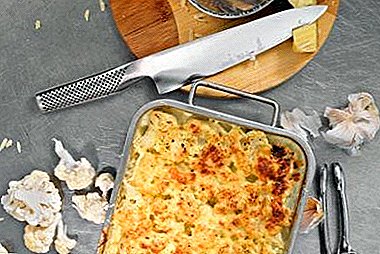 A number of factors affect the longevity of any animal. If it lives in the natural environment, then these factors include predators, diseases and human activity. A farmer can save pets from illness and from predators, but the human factor still remains. It is the person who decides how long this or that animal will live depending on the destination. In this article, we consider the life expectancy of ducks, whether it depends on the breed.
A number of factors affect the longevity of any animal. If it lives in the natural environment, then these factors include predators, diseases and human activity. A farmer can save pets from illness and from predators, but the human factor still remains. It is the person who decides how long this or that animal will live depending on the destination. In this article, we consider the life expectancy of ducks, whether it depends on the breed.
Life expectancy ducks
It is difficult to say exactly how much a duck lives, because a number of factors affect it. On average, the mallard, the ancestor of the domestic duck, lives in nature for 5-10 years. At home, these figures can be significantly lower. It all depends on the purpose of the bird.
Yaytsenoskoy
Perhaps this group of rocks can be attributed to long-livers. The productivity of domestic ducks is maintained for 6-7 years, so this is the maximum life of a bird in this group, unless it is left on the feather.
But such a life expectancy is possible only under ideal conditions of detention and proper care. Diseases and injuries can also affect duration.
Did you know? Mallard males do not know how to quack. They publish muffled "shakayushiy" sound. But the females quack.
The bird's egg-laying peak falls in the second year of its existence and then gradually declines, so if the main task of the farm is making profit from eggs, then keeping the egg of the egg breed is beneficial only for up to three years.
Meat
Representatives of this group live the least. Slaughter meat breeds reach 2-2.5 months. life, and some earlier (1.5-2 months). It is not profitable to keep them longer, since the weight gain will already be insignificant, and feed consumption will remain high. In addition, the younger the bird, the better the meat quality.
Meat-Egg
In this group, the average life expectancy between meat and egg breeds. If a bird has egg production rates lower than meat quality, then it is advisable to keep it not much longer than meat breed. If egg production is in the first place, then the optimal period is two to three years. On average, the life span of a universal group of breeds is a year or two.
Find out what characteristics are inherent in the ducks of the cherry breeds Velli, Hungarian, Cayuga, Blue Favorite, Ogar, Pace, Agidel, Star-53, Mandarin Duck, Rouen, Bashkir, Musk, Peking.
Does duck's lifespan depend on the breed?
As you can see, the lifespan may depend on the breed, more precisely, on the group to which the bird breed belongs:
- Least of breed live meat. Among them it is possible to distinguish long-livers, they will include those species, individuals of which gain slaughter weight longer than the rest. But they are rare, as they are not very beneficial for breeding.
 Breed of Moscow White ducks
Breed of Moscow White ducks - Meat and egg breeds live longer than meat, followed by egg.
 Cayuga ducks
Cayuga ducks - The last place can be attributed to a group of rocks, which is usually forgotten by everyone - decorative. Her representatives contain only for beauty and participation in exhibitions. They are the champions among domestic mallards. Under good conditions, they can live to 20 years, unless the disease or loss of beauty sends them to slaughter.
 Decorative breed of ducks - Mandarinka
Decorative breed of ducks - Mandarinka
Rules for keeping ducks
The life span of a domestic duck is determined not only by its purpose, but also by the living conditions. In the absence of proper care, the duration of the existence of any breed can be reduced to a minimum. To make the bird happy with its productivity, remember a few rules for its content:
Important! Humidity should be maintained at around 65-70%, otherwise the bird will start a premature molt and weaken the immune system.
- The room where the bird is kept must be dry and clean. There must be good ventilation, and drafts, on the contrary, should be avoided.
- Normally, there should be no more than three adult individuals per square meter.
- The house should be placed above the ground so that rodents do not disturb the ducks.
- The temperature in the house should not fall below 0 ° C.
- Access to feed and water should be free for each bird.
- It is necessary to have a place for walking with a place for swimming, otherwise ducks will quickly become fat.
- Territory walking must match the number of birds. One individual should account for 1-1.5 square meters.
- Bird diet should be balanced. Feed should be three times a day.

How many ducks live in nature
In the wild, ducks are more likely to live longer than in captivity. But still the probability of surviving 20 years is very low. This possibility falls only a few, because the duration of their existence depends on:
- human (hunting, infrastructure development, which leads to a reduction in the natural habitat of the bird);
- predators (their menu usually includes eggs, young chicks or weak individuals);
- diseases (parasites or infections, injuries).
Did you know? The maximum recorded duration of the existence of the mallard in its natural habitat was 27 years.As you can see, at home a duck can live for long. This bird is usually bred for the purpose of obtaining meat and eggs, so it is not profitable to keep it for a long time. In nature, it can live for a longer period if it does not end up in the paws of a predator.
Interesting facts about ducks: video
Reviews



 Breed of Moscow White ducks
Breed of Moscow White ducks Cayuga ducks
Cayuga ducks Decorative breed of ducks - Mandarinka
Decorative breed of ducks - Mandarinka









